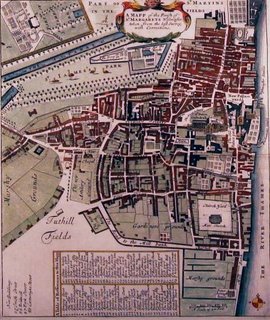
BOSWELL: "Would not you, Sir, start as Mr. Garrick does, if you saw a Ghost?"
JOHNSON: "I hope not. If I did, I should frighten the Ghost!"


 If you manage to shoulder your way through the Hordes of Covent Garden Nymphs, who tramp the Road and will happily resign their engaging Persons to your Honour for a Pint of Wine and a Shilling in an upstairs Room or upright in an Alley; you will at last reach the Theatre.
If you manage to shoulder your way through the Hordes of Covent Garden Nymphs, who tramp the Road and will happily resign their engaging Persons to your Honour for a Pint of Wine and a Shilling in an upstairs Room or upright in an Alley; you will at last reach the Theatre.If that is not Entertainment enough, on the Stage might be a new Play, a Shakespeare or an Opera; though you are just as likely to find a veritable Inundation of French Dancers, Italian Singers, Rope Walkers and Vaulters on Horseback; a Man mimicking the Harmony of Essex Lions, Mr. Clinch of Barnet with his Kit-Organ, and a hundred other notable Curiosities.
 Folding knives - also known as jack-knives, flick-knives or pocket knives - originated in the middle ages. Cutlery was a luxury back then, so as soon as there were pockets (pouches which you hung from your belt) small knives were developed which could be carried in them. The 108 useful attachments (including that little pick for cleaning horses' feet) came much, much later.
Folding knives - also known as jack-knives, flick-knives or pocket knives - originated in the middle ages. Cutlery was a luxury back then, so as soon as there were pockets (pouches which you hung from your belt) small knives were developed which could be carried in them. The 108 useful attachments (including that little pick for cleaning horses' feet) came much, much later. ... lies in looking, not merely seeing:
... lies in looking, not merely seeing:
 There is not much you cannot see on the Streets of this City, and a mind able to see common Incidents in their real State, is disposed by very common Incidents to very serious Contemplations.
There is not much you cannot see on the Streets of this City, and a mind able to see common Incidents in their real State, is disposed by very common Incidents to very serious Contemplations.
A Famble, a Tattle and two Popps, Had my Boman when he was ta'en; But had he not bouz'd in the Diddle Shops, He'd still be in Drury Lane.
